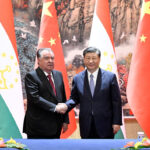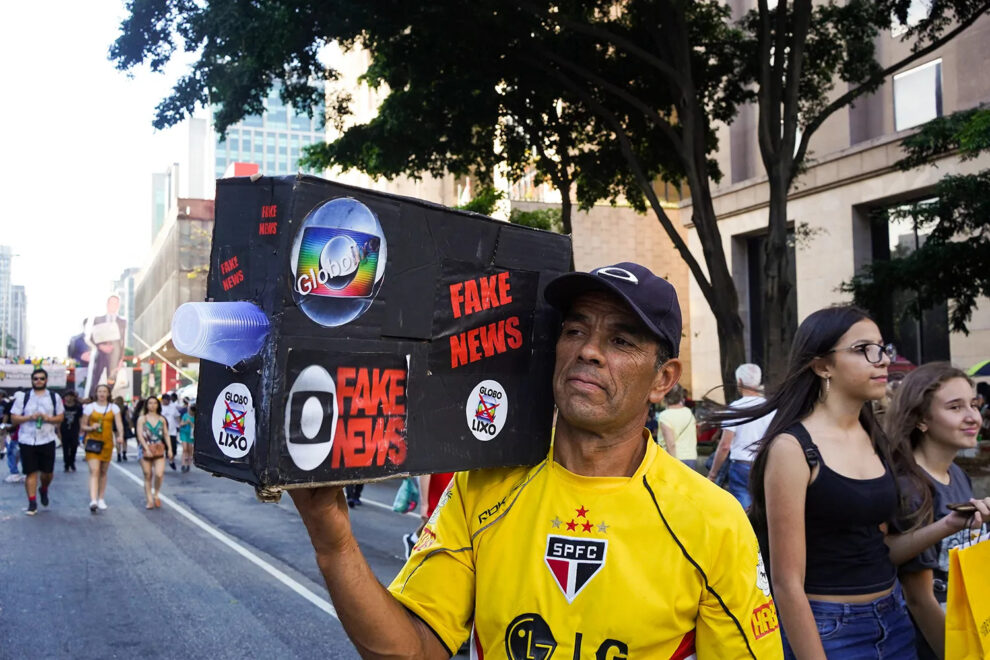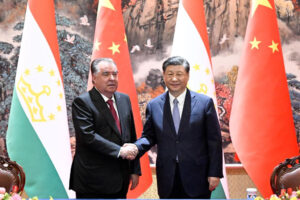Online trolls from both sides of the political spectrum are outfoxing social media platforms.
Over the past decade, fact-checkers and newsrooms have stepped up to referee the stream of false information inundating Latin American politics. Far less visible are the creators of this content. But this week, media organizations from 14 different Latin American countries, as well as Spain and the United States, began releasing a set of reports that have lifted the veil on the often unseen actors spreading false digital narratives.
The reports, coordinated by the Latin American Center for Investigative Journalism (CLIP), reveal how disinformation has been deployed across the region in recent years—and that the systems that are supposed to catch it have often failed to do so. Operating on both sides of the political spectrum, many of these so-called digital mercenaries have evaded consequences from social media platforms and government agencies.
In Mexico, according to one report, a marketing group founded by César Hernández Paredes created mock news sites that published stories favorable to his clients around the time of elections. The group also made large numbers of fake social media accounts to spread messages of support. (This was just one of the many troll farms identified in the CLIP reports.) Hernández worked for left-wing politicians, including members of Mexico’s ruling Morena party, as well as former Bolivian President Evo Morales, former Ecuadorian President Rafael Correa, and Venezuelan President Nicolás Maduro. Meta, the parent company of Facebook, took down some of Hernández’s fake accounts in Bolivia, and authorities investigated him for irregularities related to contracts in Bolivia, Ecuador, and Spain, where he worked for the left-wing Podemos party. However, CLIP did not report any court cases against Hernández’s actions in Mexico.
In Chile, the CLIP partners reported that Argentine marketeer Fernando Cerimedo’s company registered the website where a viral lie appeared claiming the country’s 2022 draft constitution would end private homeownership. Although some Chileans denounced the false claim to the organization that administered the web domain, the website only disappeared months later. Some analysts say the broader flood of fake news surrounding the politically progressive draft constitution contributed to it being rejected in a nationwide referendum in September 2022.
In Brazil, however, election authorities have taken a more aggressive stance against disinformation. Cerimedo spread falsehoods in the aftermath of Brazil’s 2022 election, but the country’s electoral court acted quickly to take down the content. For example, after losing the vote, former far-right President Jair Bolsonaro and his supporters claimed without evidence that there was election fraud. When Cerimedo published a video echoing this, the court had it removed within one day. (This, however, hasn’t stopped him from working for far-right Argentine presidential candidate Javier Milei in the current election season.)
Brazil’s approach differs from those used in Mexico and Chile, where election authorities rely on labeling and fact-checking to police disinformation but stop short of ordering publishers to remove the content.
Some critics believe Brazil has given the electoral court too much power over online speech, but its approach was created in response to public concerns that social media platforms were falling short of their own commitments to police content. For instance, independent watchdog Global Witness found that Facebook failed to detect election-related disinformation ads ahead of Brazil’s 2022 election.
Latin America’s political troll farm problem occurs against a backdrop of low trust in political parties and steadily declining trust in news media. Funding for professional journalism is scarce amid a slow post-pandemic recovery, causing many news organizations to downsize. Making matters worse, most outlets in the region lack opinion sections that are fact-checked and well-edited, Venezuelan-American writer and former New York Times en Español opinion editor Boris Muñoz wrote for the Wilson Center this year.
With low trust in the press, it is even more difficult to foster healthy political debate in these countries. But, according to Muñoz, a silver lining of traditional journalism’s slump has been the explosion of new digital news organizations producing high-quality work in Latin America, many of which participated in the CLIP investigation.
It is still very much an open question what long-term policies election regulators or other authorities in the region will establish to safeguard against online disinformation, although proposals on the matter have been floated in Brazil and Chile in recent months. Many experts have argued for better media literacy training and more academic research on disinformation rather than giving governments the power to remove content. In the meantime, CLIP’s reporting provides a valuable look at the shortcomings and successes of the current guardrails.
Source : foreignpolicy.com
















